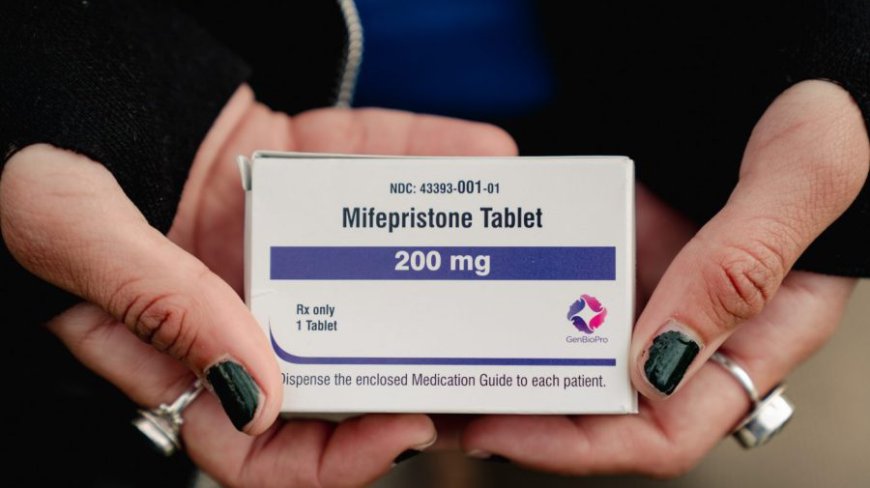Appeals court upholds West Virginia's medication abortion ban
A divided federal appeals court panel on Tuesday upheld West Virginia’s ban on medication abortion, ruling that the law does not conflict with the Food and Drug Administration’s (FDA) ability to regulate the drug. The U.S. Court of Appeals for the 4th Circuit dismissed mifepristone manufacturer GenBioPro’s effort to strike down West Virginia’s near-total abortion...

A divided federal appeals court panel on Tuesday upheld West Virginia’s ban on medication abortion, ruling that the law does not conflict with the Food and Drug Administration’s (FDA) ability to regulate the drug.
The U.S. Court of Appeals for the 4th Circuit dismissed mifepristone manufacturer GenBioPro’s effort to strike down West Virginia’s near-total abortion ban in a 2-1 decision. The court ruled FDA's approval of mifepristone did not preempt West Virginia's law.
GenBioPro produces a majority of the mifepristone sold in the United States and has held FDA approval for generic mifepristone since 2019.
GenBioPro argued that FDA’s authority to impose regulations on the prescription and distribution of mifepristone superseded state efforts to restrict access to medications. A lower court ruled against the company, which then appealed the decision.
Circuit Judge J. Harvie Wilkinson wrote that a 2007 federal law “leaves the states free to adopt or diverge from West Virginia’s path” and it “falls well short of expressing a clear intention to displace the states’ historic and sovereign right to protect the health and safety of their citizens.”
The ruling marks the first time a federal appeals court has said states can restrict the use of mifepristone. Twenty-eight states restrict access to medication abortions, according to the reproductive health nonprofit Guttmacher Institute.
The Supreme Court upheld access to mifepristone last year, when it unanimously dismissed a lawsuit seeking to roll back changes FDA made in 2016 and 2021 to expand access.
“We respect the fact that appellant and some amici have argued that access to mifepristone is important to the health of women in the course of their reproductive choices,” Wilkinson wrote. “Our objection is not to the substance of this point, but to the venue in which it is advanced.”
Wilkinson was appointed by former President Reagan. He was joined by U.S. District Judge Rossie Alston, an appointee of President Trump.
“The court is allowing the state to continue putting those seeking medication abortion care in harm's way,” GenBioPro CEO Evan Masingill said in a statement.
“The panel’s ruling allows states to restrict access to medications that FDA has deemed safe and effective, threatening a dangerous ripple effect on the availability of essential medications in this country. As we have always made clear, GenBioPro will not stop fighting to ensure all people can access safe, evidence-based healthcare.”
West Virginia Gov. Patrick Morrisey (R) said in a statement he was “proud to see a victory in this case.”
“West Virginia can continue to enforce our pro-life laws and lead the nation in our efforts to protect life. We will always be a pro-life state!” he said.
In a dissent, Judge DeAndrea Gist Benjamin said the state’s law “erects barriers to life-saving healthcare for countless West Virginians in ways not envisioned by Congress.”
Benjamin, who was appointed by former President Biden, added that “the twin sensitivities of abortion access and states’ rights cannot influence our willingness to recognize the Food and Drug Administration’s (FDA) clear authority in this area.”
“By criminalizing medical providers and prohibiting medication abortions, then, West Virginia has exceeded the ability to regulate abortion as established in Dobbs and has trespassed on the FDA’s authority to regulate the safe use of and unburdened access to mifepristone,” Benjamin wrote.
What's Your Reaction?























